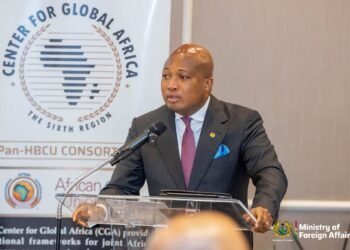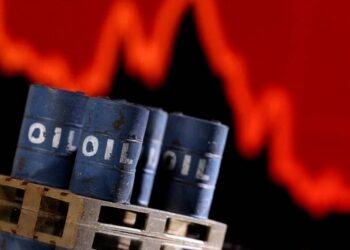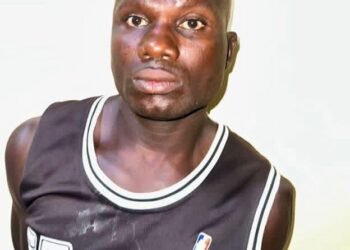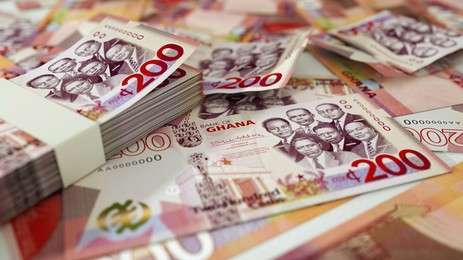The Acting Chief Executive Officer of the Bui Power Authority (BPA), Ing. Kow Eduakwa Sam, has called for stronger policy coordination, grid reinforcement, and investment in energy storage infrastructure to accelerate Africa’s renewable energy transition.
Speaking as a panelist during a high-level session on “Strategies and Synergies for Africa” at the 21st Association of Power Utilities of Africa (APUA) Congress in New Cairo, Egypt, Ing. Sam emphasized that renewable expansion in Africa and Ghana in particular requires both institutional reforms and technological innovation to achieve sustainable growth.
In his contribution, Ing. Sam outlined key barriers slowing renewable energy growth in Ghana, particularly the limitations of the national grid.
He noted that without major upgrades, the existing transmission infrastructure cannot efficiently absorb the increasing share of solar and wind power being developed across the country.
“We need government-led reinforcement of the national grid to accommodate higher levels of solar PV integration.
“Decoupling grid reinforcement costs from project costs will ultimately help reduce electricity tariffs for consumers and encourage greater private investment.”
Ing. Kow Eduakwa Sam, Acting Chief Executive Officer of the Bui Power Authority (BPA)

He explained that the current financing structure often requires renewable energy developers to bear part of the grid expansion cost a practice that inflates project costs and undermines affordability for end-users.
According to him, separating such costs and placing them under government or public-private financing mechanisms would make renewable energy projects more bankable and equitable.
This year’s Congress, which also marked the 55th Anniversary of APUA, was held under the theme “The Energy Transition Challenges” and supported by the African Development Bank (AfDB).
The event brought together energy ministers, policymakers, utility executives, international experts, and academia to explore Africa’s clean energy future and identify pathways toward a just and inclusive transition.
The Congress also hosted the African Single Electricity Market Forum, where discussions centered on harmonizing regional power markets and scaling up renewable energy within Africa’s energy mix.
Addressing Intermittency and Cost Barriers

Ing. Sam also identified Battery Energy Storage Systems (BESS) as a crucial component in ensuring the reliability of renewable energy.
“Battery storage systems are essential for balancing generation and demand, particularly as more solar projects come online.
“However, the current high cost of batteries significantly undermines the competitiveness of renewable electricity.”
Ing. Kow Eduakwa Sam, Acting Chief Executive Officer of the Bui Power Authority (BPA)
He called for regional collaboration in research, technology localization, and financing to make battery storage affordable and accessible for African utilities.
In addition to high battery costs, Ing. Sam raised concerns over taxes and levies imposed on imported renewable components.
He said such fiscal burdens on solar panels, inverters, and mounting systems inflate project costs and ultimately reflect in consumer tariffs.
Bui Power Authority’s Renewable Success Story

Highlighting BPA’s progress, Ing. Sam said the Authority has taken a proactive approach to renewable integration.
During the construction of the Bui Hydroelectric Project, the Authority made forward-looking investments in grid expansion and switchyard upgrades to support future solar developments.
Today, 105 megawatts peak (MWp) of solar power is operational under BPA’s portfolio, while another 145 MWp is under construction and expected to be completed by the end of 2026.
The combined capacity of 250 MWp positions BPA as a leading player in Ghana’s renewable energy landscape.
“Our decision to reinforce the grid and expand the switchyard during the hydropower project has allowed us to integrate solar power efficiently.”
Ing. Kow Eduakwa Sam, Acting Chief Executive Officer of the Bui Power Authority (BPA)
In his concluding remarks, the BPA Acting CEO emphasized the continued importance of hydropower in supporting renewable energy expansion across Africa.
He described hydropower plants as natural “energy stabilizers” capable of complementing variable renewables like solar and wind.
“Countries with hydropower resources can use them as natural storage systems to mitigate the ‘duck curve’ a phenomenon that occurs when solar generation peaks during the day and drops sharply at night.
“This capability enhances grid stability and ensures a more reliable power supply.”
Ing. Kow Eduakwa Sam, Acting Chief Executive Officer of the Bui Power Authority (BPA)
He added that the integration of hydropower and solar systems can significantly reduce Africa’s reliance on fossil fuels while maintaining supply reliability, a key element for the continent’s energy transition.
The APUA Congress concluded with a collective call for African utilities and policymakers to accelerate renewable energy adoption through regional cooperation, shared infrastructure, and technology transfer.
READ ALSO: BoG’s $1.15bn FX Injection Sparks Clash with IMF and World Bank Over Cedi Stabilization



















